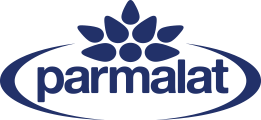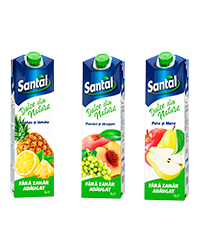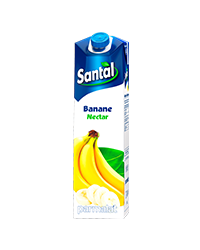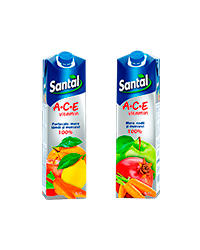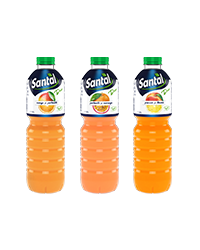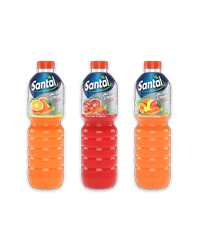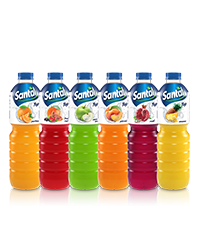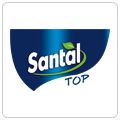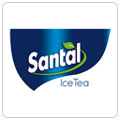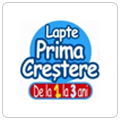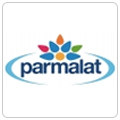SANTAL DULCE DIN NATURĂ
Santal Dulce din Natură is a new range that contains three assortments of non-carbonated soft drinks obtained from 100% natural origins ingredients, having a fruit content of minimum 60% and 70% and not containing added sugars, dyes, gluten, preservatives or other artificial flavors.
Santal Dulce din Natură assortments are flavored and refreshing, having a sweet and pleasant taste that is given only by the natural sweetness of fruits. The flavor of these soft drinks comes as a result of combining of two different fruits, in order to obtain the best taste for each assortment: Pear & apple, Pineapple & lemon, Peach and grapes.
BANANA NECTAR
Santal Banana Nectar is the newest assortment that comes to complete the range of existing nectars (peach, pineapple, apricot, green apple, orange, pear).
SANTAL ACE VITAMIN 100%
The new Santal ACE Vitamin 100% range comes to complete Santal Juices 100% category and contains 3 products: apple, red orange & carrots; orange, apple, lemon & carrots; orange, pomegranate & carrots.
Santal ACE Vitamin 100% products contain only natural ingredients, with addition of vitamins A, C and E and does not contain added sugars, dyes, preservatives or other artificial flavors. The harmonious combination of the selected fruits, with the addition of carrots and vitamins, provide to each assortment a special, flavored and delicious taste.
Santal ACE Vitamin 100% range addresses the functional products area, due the addition of carrots in its composition and the intake of vitamins A, C and E and antioxidants.
SANTAL DUO LIGHT
Santal DUO Light comes as a functional range within Santal Still Drink category, containing three products: Mango&Orange, Peach &Lemon and Orange&Maracuja.
This range has been developed as a combination of two fruits, which are harmoniously mixed to obtain a perfect taste - exotic, flavored and refreshing.
The idea behind the Santal Duo Light range concept was to reduce the amount of sugar added and replaced it with stevia, a natural, low-calories sweetener, in order to diminish the calories intake. Thus, the three products of the range are relevant and well integrated in the functional products area.
SANTAL ACTIVE DRINK
The new Santal Active Drink range - ACE 15% comes to supplement Santal still drink category and contains three assortments: Exotic fruits & carrots, Red fruits & carrots and Oranges & carrots. The new range Santal Active Drink comes with a combination of different fruits, specially selected and carrots, which are harmoniously mixed to have as a result a perfect taste and meant to be refreshing, to bring flavors, but also to provide vitamins and antioxidants, thus entering in the functional products area.
SANTAL TOP
Santal reinvented itself for its consumers and returned on the non-carbonated fruit beverage market, with a much richer range of taste. The 8 Santal TOP flavors- Oranges, Red Fruits, Peaches, Green Apples, Cherries, Lemonade, Pomegranate and Pineapple & Melon- now come in a new packaging with modern design and a new label.
